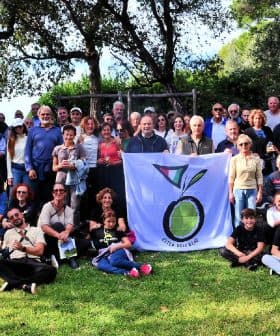Extra Virgin Olive Oil for Use in Cosmetics Gets a Tax Break in Italy
The Italian Revenue Agency has decided that extra virgin olive oil used in cosmetics will be subject to the same VAT as olive oil for human consumption, which is 4 percent. This decision was made after a marketing firm requested clarification on the VAT for olive oil used in cosmetics, as olive oil has been historically used in skincare products for thousands of years.
The Italian Revenue Agency has ruled that extra virgin olive oil used in cosmetics is entitled to the same value-added tax (VAT) as extra virgin olive oil destined for human consumption.
In Italy, vegetable oils, virgin and extra virgin olive oil destined for human consumption are subject to a four percent VAT. Meanwhile, a 10 percent VAT is applied to refined olive oils and any vegetable or seed oil destined for other purposes, such as biofuel, cosmetics or other industrial products.
The announcement from the Agenzia delle Entrate came after a marketing firm asked the agency to confirm at which VAT its extra virgin and virgin olive oil had to be sold for use in cosmetics.
See Also:Italian Olive Growers Suffer Through Long Summer of Drought, WildfiresThe agency, in turn, published an official interpretation of the current rules. It said that the four percent regime is to be attributed only to those olive oils deriving from the simple pressing of the olives, with no additives involved whatsoever.
The agency specified that the transformation of those olives “will not have caused any alteration” of the resulting oil, and “the olives will not have undergone any process different from washing, decanting, centrifugation and filtering.”
The resulting olive oil also must adhere to the chemical and organoleptic parameters that define extra virgin and virgin olive oils, per European Union regulation.
In particular, olive oils “obtained with the use of solvents, chemical or biochemical additives or through chemical reactions of condensation, or else mixed oils of different nature are excluded.” For these refined olive oils, the VAT remains at 10 percent.
The agency also emphasized how the four percent rule applies to other vegetable oils destined for human or animal consumption, included the raw vegetable oils destined to be refined for food production.
Solely in the case of olive oil, though, wrote the agency, the rule does not ask for the product to be destined explicitly for consumption.
The use of high-quality olive oil in the cosmetics industry should not come as a surprise, given that olive oil has been used for skincare for millennia.
Olive oil-based unguents and cosmetics have been found in 5,000-year-old tombs in Egypt, where they were used to preserve mummies. Both ancient Greek and Roman bathers used olive oil for cleaning themselves.
Furthermore, olive oil soap has been produced in the Levant for more than 1,000 years. By the fourteenth century, olive oil also played a critical role in the medieval soap factories of Venice and Marseille.
Around the world, olive oil is used to cleanse, rejuvenate and heal damaged skin and applied as a moisturizer and make-up remover.









